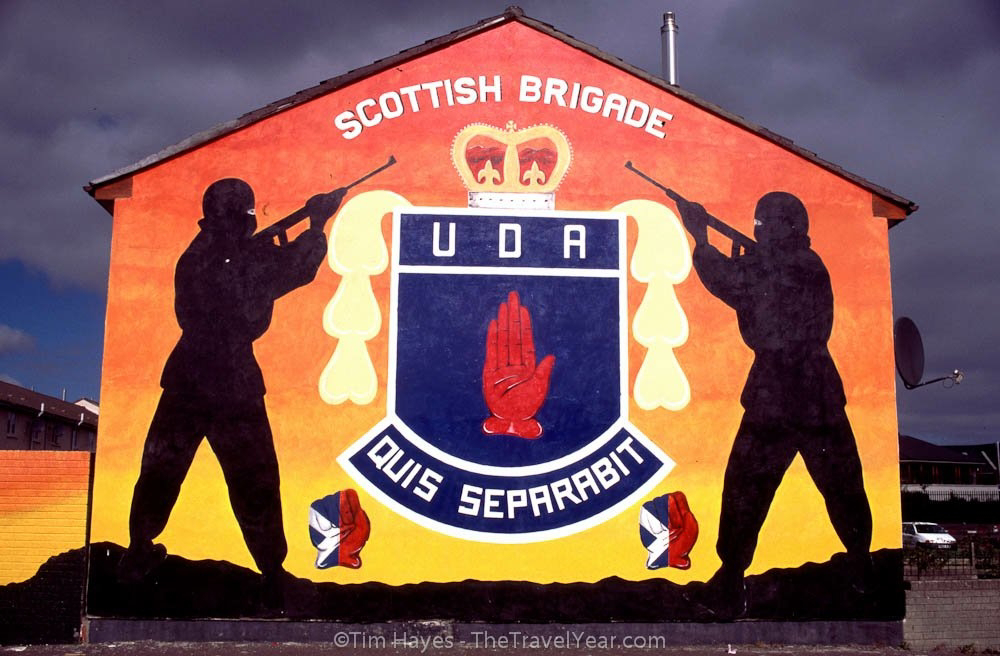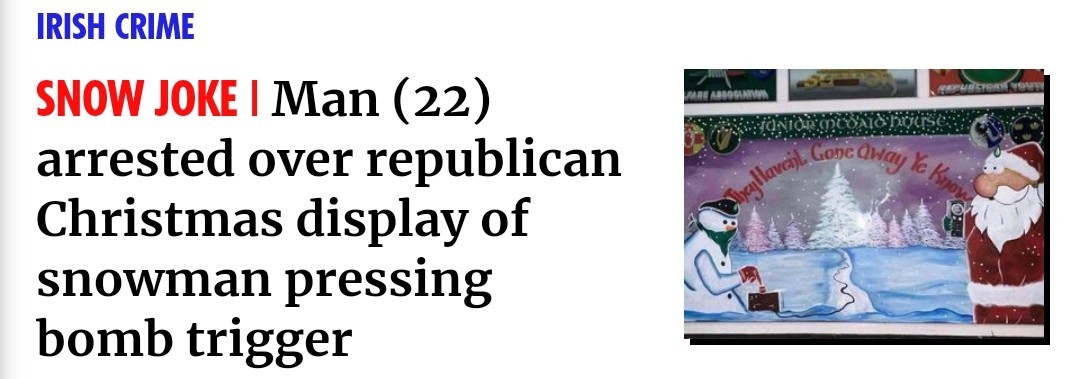A group which ‘hunts’ ex-forces ‘Walter Mittys’ have revealed that twins from Belfast who claim to be former members of RUC Special Branch are favourites to win ‘Walt of the Year 2022’.
The Walter Mitty Hunters Club HQ say they expose people who make false claims about their service because their actions “causes distress and anger for veterans and their families”.
For years the Blair have been attending veterans' marches and protests and organised campaigns to help former servicemen and women who suffer from PTSD.
But as revealed here, the Walter Mitty Hunters Club HQ (WMHCHQ) don’t believe they have ever served a day in the RUC and they compiled a dossier of evidence to call them out.
The dossier includes a timeline which, they say, doesn’t fit, medals which they say couldn’t have been awarded to them and the fact one of them sports a ‘Special Branch NI’ tattoo on his arm – something, they say, no real Special Branch officer would ever do.
Joe Blair has a tattoo of Special Branch on his left arm
◾'Dublin Jimmy' who ran terror campaign to support Seán Quinn was 'working for MI5' The twins took to social media to publicly denounce allegations they had completely made up their service record.
They continue to stand by their claims that they DID serve “on the frontline of terrorism” in Northern Ireland and had to leave the country in 1982 because of “an imminent death threat from the IRA” after their cover was blown.
This week the Walter Mitty Hunters Club HQ, which has exposed dozens of what they describe as ‘Walts’ across the UK, said the Blair twins are among the favourites to win the ‘prestigious’ ‘Walt Of the Year 2022’ end of year title.
But they told the Sunday Worldthey’ll have to beat an ex-UKIP candidate who claimed to be a decorated ex-Navy officer and a ghost hunter who claimed to have saved the lives of two high-ranking US generals in Afghanistan and that he also brought back the spirit of a dead British soldier — despite having never been to
Afghanistan!
“At the moment the twins are neck and neck with their mate, (name removed), for Walter Mitty of the Year,” they told the Sunday World.
The Walter Mitty group say veterans’ groups are being increasingly targeted by people either exaggerating their service record or simply making it up completely.
Robert (Bobby) and Joseph Blair
And with a plethora of old medals and uniforms on sale across the internet, it’s easy to buy your way to becoming a decorated service person.
"Currently there is no law in place which effectively prosecutes people who use the armed forces and the veterans' community to gain an advantage," they told us.
“The wearing of medals and regimental berets and badges which have not been earned does cause distress and anger for veterans and their families.
“The WMHCHQ solely exist to act as a deterrent to those who wish to masquerade as a veteran, be it political gain, financial gain or simply to inflate one’s ego. We’re watching.”
The Blair Twins even had the audacity to have photographs of themselves placed on mugs when at remembrance day parade
The Blair twins have lost a lot of support.
“One very important thing to add – because of our reputation we have had people try to use us to destroy the reputations of innocent veterans.
“Mainly business competition or ex-spouses looking for revenge so we have to take time on every report and only act on 100 per cent factual evidence.”
Since posting live videos of their defence, the Blair twins have removed most of the videos from the internet.
But Joseph did post another live video three weeks ago where he openly talked about the pair of them being arrested for pouring petrol over the reception of a police station in Birmingham in 2013. He says he and his brother took over Bournville Police Station to make a protest about PTSD and the lack of action by the government.
Veterans within the WMHCWQ claim the Blair twins couldn’t possibly have been in the RUC’s Special Branch Anti-Terrorist Squad at the times they claim to have been.
Yet within three years they had not only joined the RUC, passed training, passed specialist training to become members of the anti-terrorist squad but they had also been rumbled by the IRA and forced to flee Belfast for ever, still only aged 18.
In a since deleted video defence, Joseph Blair said: "In 1982 we had threats off the IRA and the INLA. They were going to kill us and we were pulled out of the North of Ireland by Special Branch RUC who I f***ing worked for.
"I worked because of you bastards. What you don't realise is we've got splinter groups in the North of Ireland. Both me and Bobby served in the North of Ireland on the front line of terrorism.
"You mother f***ers have just signed me and his f***ing life away. "I'm ending this now, you shower of bastards."
Follow this link to to find out more on this story: MITTS-TAKE | Belfast’s controversial Blair twins tipped for Walter Mitty 'honour' over RUC claims






















































